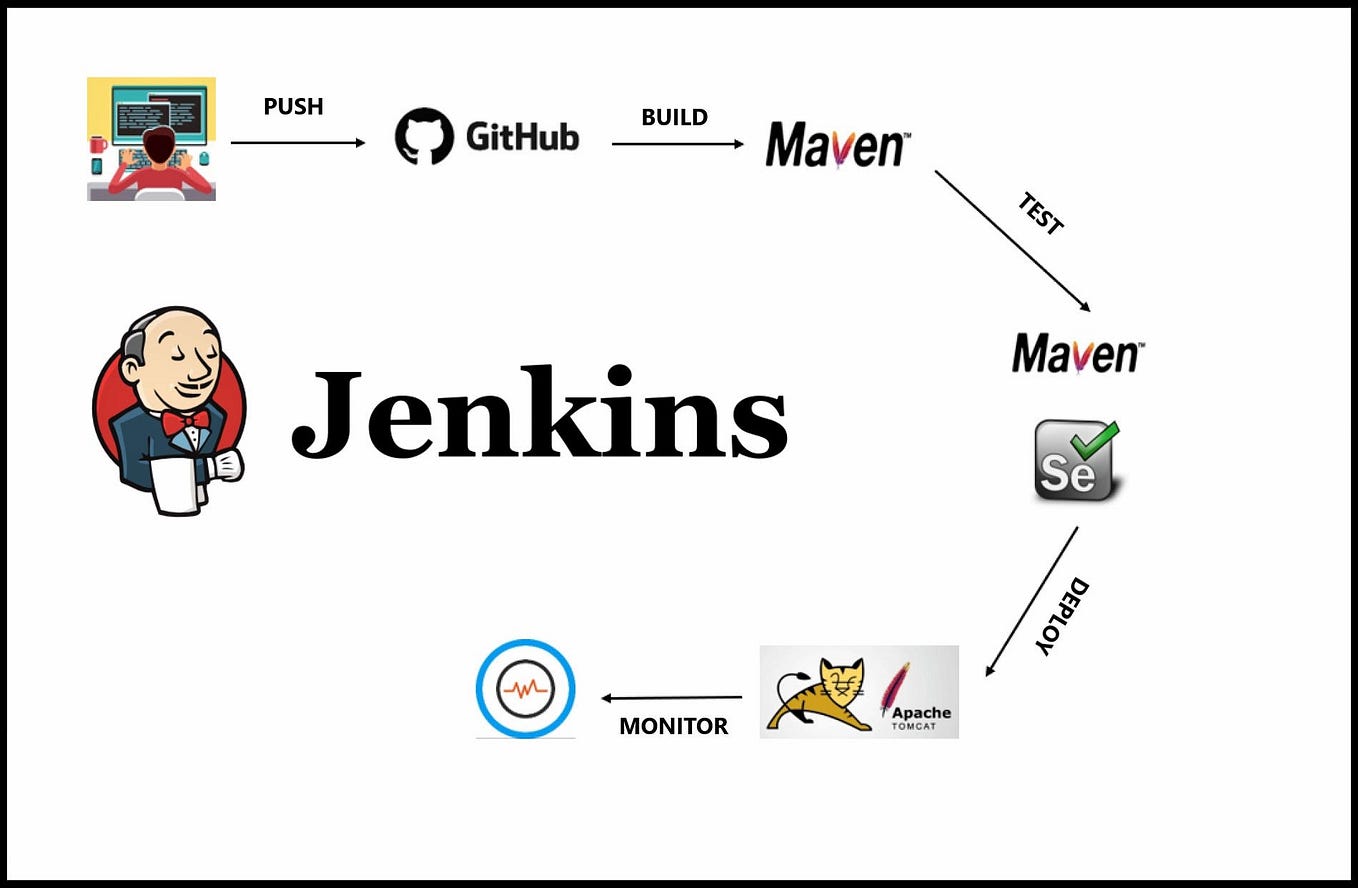GitLab vs. Jenkins: A Comparative Analysis of CI/CD Tools for Effective Development Workflows
Continuous Integration and Continuous Deployment (CI/CD) are essential practices in modern software development workflows. They enable teams to automate the build, test, and deployment processes, resulting in faster and more reliable software releases. Two popular CI/CD tools in the market today are GitLab and Jenkins. In this blog post, we will compare GitLab and Jenkins, highlighting their features, strengths, and weaknesses, to help you make an informed decision on selecting the right tool for your development workflow.
Overview of GitLab
GitLab is a web-based DevOps platform that provides a complete CI/CD solution integrated with source code management, issue tracking, and project management capabilities. It offers a comprehensive set of features to support the entire software development lifecycle, making it a popular choice among development teams.
Key Features of GitLab
- Integrated Git repository management
- Robust CI/CD pipelines
- Docker container registry
- Built-in code review and collaboration tools
- Issue tracking and project management capabilities
- Infrastructure as Code (IaC) support with GitLab CI/CD YAML configuration
- Kubernetes integration for deploying applications
Strengths of GitLab
- All-in-one solution: GitLab provides a unified platform for managing source code, CI/CD, and project management, eliminating the need for integrating multiple tools.
- Simple setup and configuration: GitLab offers an intuitive user interface and straightforward configuration process, making it easy to get started with CI/CD.
- Comprehensive documentation and community support: GitLab has extensive documentation and an active community that can assist with any questions or issues that may arise during setup and usage.
- Built-in code review: GitLab’s code review features enable collaboration and code quality improvements within the same platform.
Weaknesses of GitLab
- Limited plugin ecosystem: While GitLab offers a range of built-in features, the available plugins and integrations may be relatively fewer compared to Jenkins.
- Steeper learning curve for complex configurations: While simple setups are easy to configure, more complex CI/CD configurations in GitLab may require additional time and effort to master.
- Overview of Jenkins: Jenkins is an open-source automation server that has been a staple in the CI/CD landscape for many years. It provides a vast plugin ecosystem, allowing for extensive customization and integration with various tools and technologies.
Key Features of Jenkins
- Highly extensible with a wide range of plugins
- Distributed builds and scalability
- Flexible and customizable workflows
- Integration with multiple version control systems
- Rich community support and active plugin development
Strengths of Jenkins
- Plugin ecosystem: Jenkins boasts a massive collection of plugins, enabling integration with virtually any tool or technology you may use in your development workflow.
- Highly customizable: Jenkins provides a flexible and scriptable environment, allowing you to tailor your CI/CD processes precisely to your requirements.
- Extensive community support: With a large and active community, Jenkins has extensive documentation, tutorials, and user forums, making it easier to find assistance or guidance.
Weaknesses of Jenkins
- Steeper learning curve for beginners: Jenkins can be overwhelming for newcomers due to its vast array of options and configuration settings.
- Limited built-in features: Unlike GitLab, Jenkins does not provide built-in code management, issue tracking, or project management capabilities, requiring additional tool integration for those functionalities.
- Maintenance and scalability: As Jenkins relies heavily on plugins, managing and updating plugins, and ensuring scalability can sometimes be a challenge.
Installing MongoDB on Mac: A Step-by-Step Guide for Beginners
Choosing the Right Tool
Selecting the appropriate CI/CD tool depends on your team’s specific needs and preferences. Consider the following factors when making your decision:
- Team size and complexity: GitLab’s all-in-one platform may be more suitable for smaller teams or those who prefer simplicity, while Jenkins’ extensibility is ideal for larger teams with complex workflows and diverse tool integration requirements.
- Plugin requirements: If your workflow heavily relies on specific plugins or integrations, Jenkins’ extensive plugin ecosystem may be a significant advantage.
- Learning curve: Evaluate the expertise and learning curve of your team. GitLab generally offers a more straightforward setup, while Jenkins may require more time and effort to configure and maintain.
Scalability and Performance
- GitLab’s integrated approach allows for easier scalability as your team grows. It provides a centralized platform that can handle increasing workloads efficiently.
- Jenkins, on the other hand, offers distributed builds and a master-slave architecture, allowing you to distribute workloads across multiple machines, enhancing scalability and performance.
Security
- GitLab emphasizes security by providing features such as code scanning, vulnerability management, and access control to ensure the safety of your codebase and development environment.
- Jenkins, being an open-source tool, may require additional security measures and plugins to achieve the same level of security as GitLab.
Pricing
- GitLab offers both a free Community Edition and a paid Enterprise Edition with additional features and support options. The pricing is based on the number of users and includes bundled CI/CD capabilities.
- Jenkins, being open-source, is free to use. However, it’s important to consider the costs associated with infrastructure, maintenance, and any additional plugins or tools required for your specific needs.
Integration and Ecosystem
- GitLab integrates well with various tools and technologies, including popular version control systems, issue trackers, and container registries. While it may have a smaller plugin ecosystem compared to Jenkins, it provides a comprehensive set of functionalities within its platform.
- Jenkins, with its extensive plugin ecosystem, offers a wide range of integrations with virtually any tool or technology you may need. This flexibility allows you to customize and extend your CI/CD pipelines as per your specific requirements.
Community and Support
- GitLab has an active community and provides official documentation, support forums, and resources to assist users. It also offers enterprise-grade support for paid users.
- Jenkins has a large and vibrant community with extensive documentation, tutorials, and user forums. However, the level of support may vary as it relies heavily on community contributions.
Both GitLab and Jenkins are powerful CI/CD tools, each with its own set of strengths and weaknesses. GitLab’s all-in-one approach and user-friendly interface make it a great choice for teams seeking simplicity and integration, while Jenkins’ extensive plugin ecosystem and flexibility cater to teams with complex workflows and specific tool requirements. Carefully consider your team’s needs and preferences to make an informed decision, and remember that both tools have active communities that can provide support and guidance along the way.













